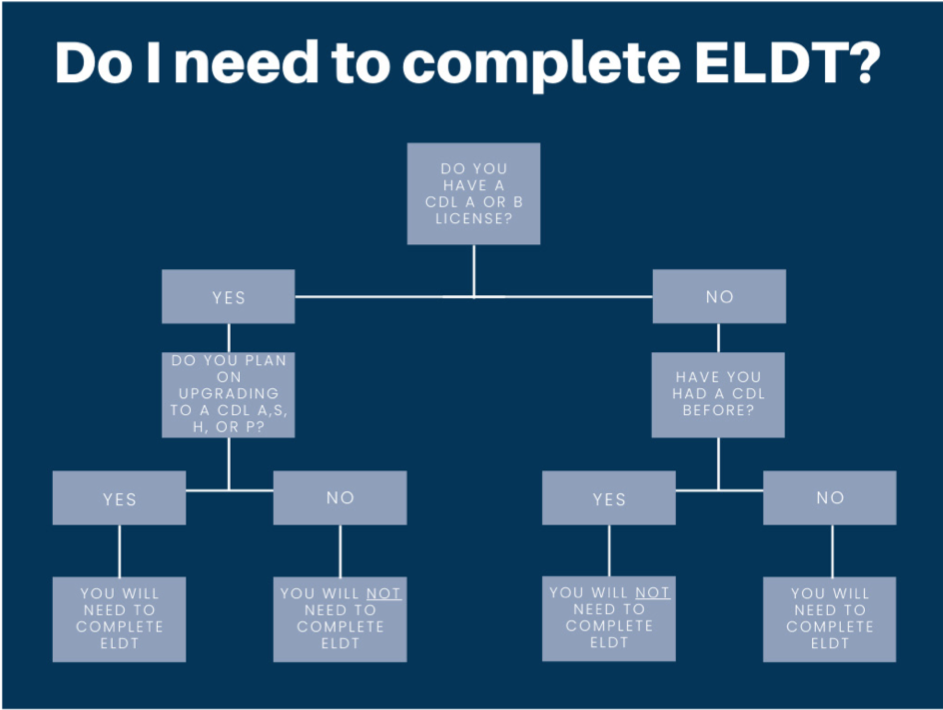
The U.S. Commercial Motor Vehicle Safety Act of 1986 established minimum standards for “the licensing, testing, qualifications and classifications of commercial motor vehicle operators” and directed states to establish a licensing program that complies with these standards. Public works departments in Nebraska often need employees to obtain a CDL to perform essential job functions.
This article provides information on the general process to obtain a CDL in Nebraska and CDL regulations. The Federal Motor Carrier Safety Administration’s (FMCSA) “Minimum Training Requirements for Entry-Level Commercial Motor Vehicle Operators” will go into effect on February 7th, 2022. The information in this article is intended for mangers who routinely hire CDL drivers or have drivers in need of license upgrades to CDL or another class of CDL.
Additional resources are provided to assist employees and managers with navigating the CDL process.
General process for a obtaining CDL license
All vehicles with a gross vehicle weight greater than 26,001 pounds require a CDL to operate. In Nebraska, CDL licenses are divided into three classes – A, B, and C – based on vehicle characteristics. The license classification system is hierarchical, allowing for the operation of vehicles under a lower class. For example, if a person has a class A license, they can operate a Class B or Class C vehicle. Operators with a Class B license can operate a Class C vehicle but not a Class A vehicle.
In general, the process of obtaining a CDL is the same regardless of class. First, all applicants must be at least 18 years old, lawfully reside in the United States, have a principal residence in Nebraska, and, when required, present a valid medical certification card.
Once these initial steps are complete, an applicant must take a knowledge test at their local Department of Motor Vehicles. They must bring the aforementioned documentation to be eligible for the test. Once the applicant has successfully passed this exam, they will be granted an CDL instructional permit that allows them to operate a commercial motor vehicle accompanied by a current CDL license holder in the passenger seat of the vehicle. Instructional permits are granted for a period of three months. The Nebraska Commercial Driver License Manual is a great resource to reference when studying for this exam.
At the end of the instructional period, the applicant must pass a skills test at an authorized location.
What are the Entry Level Driver Training Regulations?
In 2016, the FMCSA published a final rule establishing “Minimum Training Requirements for Entry-Level Commercial Motor Vehicle Operators” (Federal Register, 2021). In general, this rule does two things: 1) establishes minimum training requirements for those obtaining a class A, B, S, or H CDL license for the first time; and 2) creates a training provider registry. These regulations were intended to take effect in February 2020 but were granted an extension to February 7th, 2022. From that date going forward, all new applicants for CDL licenses will be required to complete an Entry-Level Commercial Driver Training (ELDT) course from a provider listed on the training provider directory.
What Do These Regulations Mean for My Agency?
These regulations set the minimum training requirements that State driver’s license agencies must adopt to provide CDLs. If your agency has a driver that is either getting a CDL for the first time or upgrading an existing license, they will need to complete the ELDT training before they are eligible to sit for State required knowledge and skills tests (Register, 2021). The ELDT training can only be completed using a certified provider from the FMCSA Training Provider Directory. Training providers have not been made public as of this publication. Once a driver has completed the ELDT, the training provider will submit their information to the FMCSA. State driver licensing agencies will then verify that a driver has completed their training prior to administering the knowledge and skills tests.
Next Steps to Prepare for Entry-Level Driver Training (ELDT)
The FMCSA has put together a robust website to help agencies and drivers prepare for the new ELDT regulations, including recorded webinars, FAQs, and fact sheets. Nebraska LTAP recommends visiting the site and reviewing CFR 49 Part 380 to gain a better understanding of your obligations under ELDT.
Conclusion
As a public works employee or manager, you will likely have to navigate the CDL process at some point. This article provides general guidance on the CDL process in Nebraska and the regulations governing CDL holders.
Additional resources are provided below for further assistance.
- Training Provider Website (https://tpr.fmcsa.dot.gov/Provider)
- Curricula Summary (https://tpr.fmcsa.dot.gov/content/Resources/ELDT-Curriculum-Summary_508.pdf)
- Training Provider’s Guide to ELDT (https://tpr.fmcsa.dot.gov/Resource/Open/eldt-overview)vFAQ (https://tpr.fmcsa.dot.gov/FAQ )
- FAQ (https://tpr.fmcsa.dot.gov/FAQ)
- Code of Federal Regulations (actual text of regulations) (https://www.ecfr.gov/current/title-49/subtitle-B/chapter-III/subchapter-B/part-380#sp49.5.380.f)
- Nebraska CDL Information (https://dmv.nebraska.gov/cdl/cdl)
- Nebraska Commercial Driver’s License Manual (https://dmv.nebraska.gov/sites/dmv.nebraska.gov/files/doc/manuals/cdl_manual.pdf)
- CDL Exam Practice Questions (https://www.nebraska.gov/dmv/cdl-practice-exam/practice_test.cgi)
Reprinted with updates from Kansas LTAP
More details at: https://dmv.nebraska.gov/cdl/cdl